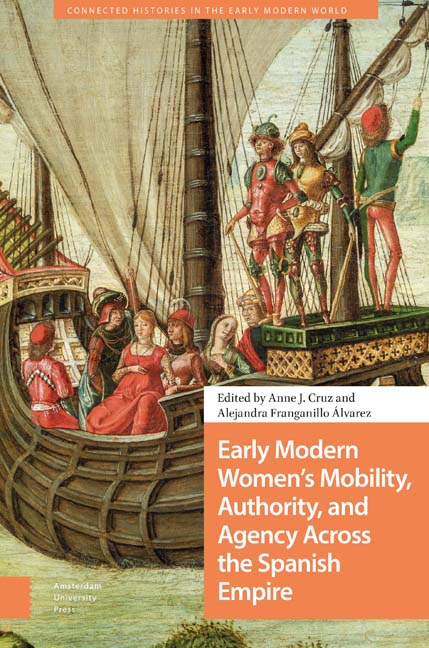2 - Isabel Barreto , Navigator of the South Seas and Governor of the Isles of Salomon
Published online by Cambridge University Press: 08 May 2024
Summary
Abstract
In 1595, Isabel Barreto (1567–1612), married to the explorer, Álvaro de Mendaña, sailed from Peru to settle the Solomon Islands, which had been discovered by Mendaña in 1568. After his death, Barreto inherited his property and titles, including that of adelantada (governor) of the islands. As captain of the fleet's flagship, the San Jerónimo, she led a decimated crew and settlers to the Philippines, and she became the admiral of the expedition at the same time she became the only woman ever to lead an early modern fleet. Remarried, she left for Mexico and later went to Peru, disappearing from the historical record until she signed her last will and testament in Castrovirreyna, Peru, in 1612. Based on her testament, this chapter rectifies Barreto's history which, until now, had mainly been reconstructed from an untrustworthy nineteenth-century source that condemned Barreto's command and personality.
Keywords: woman admiral, settler, colonial Peru, colonial Mexico, women's testaments, early modern women
The adventures and misadventures of Isabel Barreto's early modern voyage to the South Pacific read like the script of a blockbuster film. However, not only has she been ignored as the potential protagonist of a cinematic production, but she has also been maligned, stereotyped, and censored. In addition, as this chapter will show, both the crude summaries of events on the voyage and the timid attempts to vindicate her disregard significant facts and rehearse some inaccuracies. In fact, it appears as though the scant information about Barreto (1567–1612) that has become widely available is mostly reproduced verbatim, neither documenting it nor contrasting it with contemporaneous sources. This investigation challenges those simplifications in two ways. Firstly, it will undertake a scrutiny of events on the voyage, testing what the main sources say and how they say it. Secondly, and more importantly, it will analyze and contextualize the only primary source in which Barreto's agency can be ascertained and that has been disregarded to date: her last will and testament.
On June 17, 1595, having married a seasoned explorer, Álvaro de Mendaña, the young Isabel Barreto sailed from the Peruvian port of Paita on way to settle the Solomon Islands, which her husband had “discovered” in an earlier voyage. Following Mendaña's untimely death in October of that year, Barreto inherited his property and titles, including that of governor (adelantada) of the Solomon Islands.
- Type
- Chapter
- Information
- Publisher: Amsterdam University PressPrint publication year: 2024



